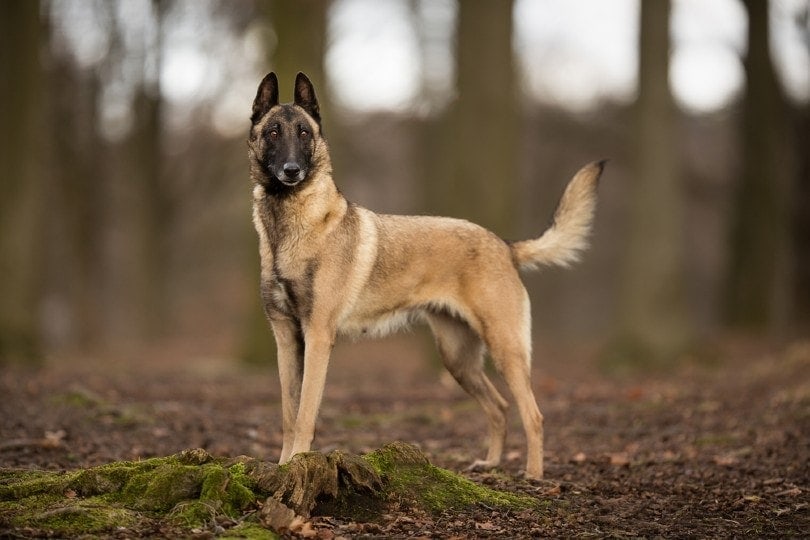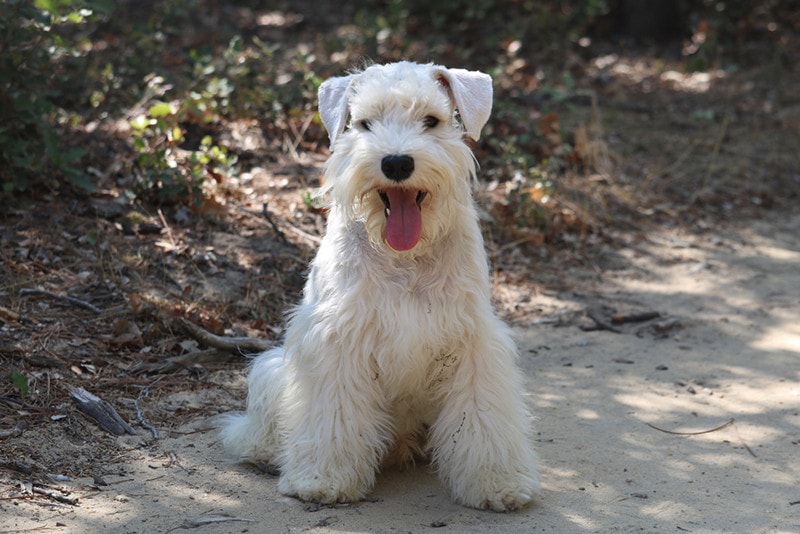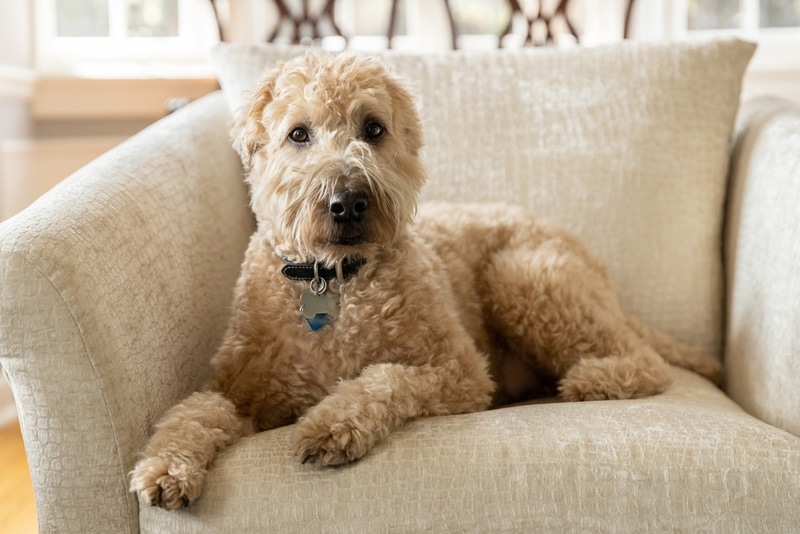Do Cockapoos Shed a Lot? Hair vs Fur Explained
Updated on
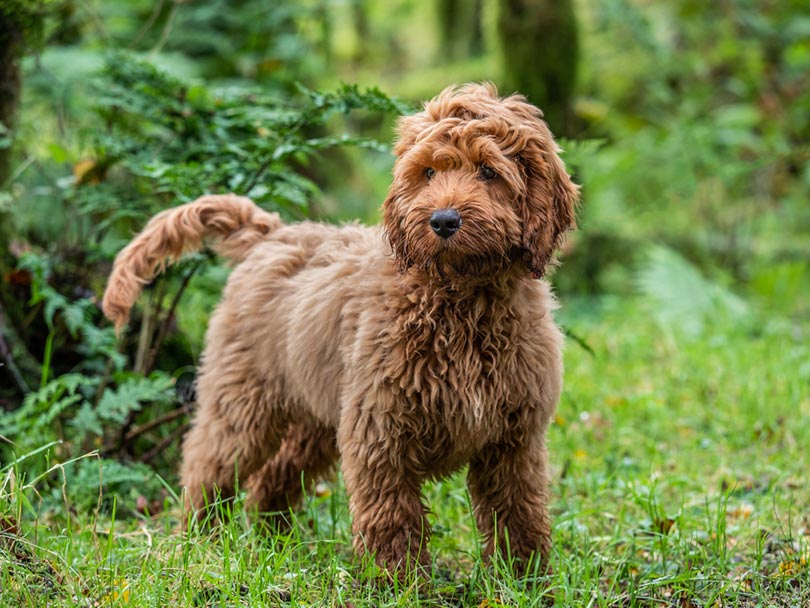
The cockapoo is a favorite of all the dog breeds that have been mixed with poodles. It is intelligent, playful, low-maintenance, and full of energy. Cockapoos make wonderful companions and fantastic family dogs. In today’s non-stop world, however, many folks want a dog breed that’s easy to care for and needs as little grooming as possible to stay healthy and happy.
That begs the question; do cockapoos shed a lot? While we can’t answer this question with 100% certainty as they’re a mixed breed, historically, cockapoos have been known to shed very little. Also, while cockapoos aren’t 100% hypoallergenic, they’re quite close, which makes them a good choice for pet parents with allergies.
Now that you know cockapoos don’t shed a lot, you likely have more questions about caring for this delightful dog breed. Is there a cockapoo shedding season, and do cockapoos have a coat with a strong smell? Read on for the answers to those questions and several more, plus real-world advice and tips on caring for your cockapoo!
Why Don’t Cockapoos Shed a Lot?
To understand why most cockapoos shed minimally and are nearly hypoallergenic, all you need to do is look at their heritage. Cockapoos are a mix of cocker spaniel and poodle, two breeds with vastly different fur. While cocker spaniels have long hair and shed constantly, poodles have short hair that’s also tightly curled and sheds significantly less.
Indeed, the poodle has been bred with so many other breeds primarily because of its wonderful low-maintenance, hypoallergenic coat.
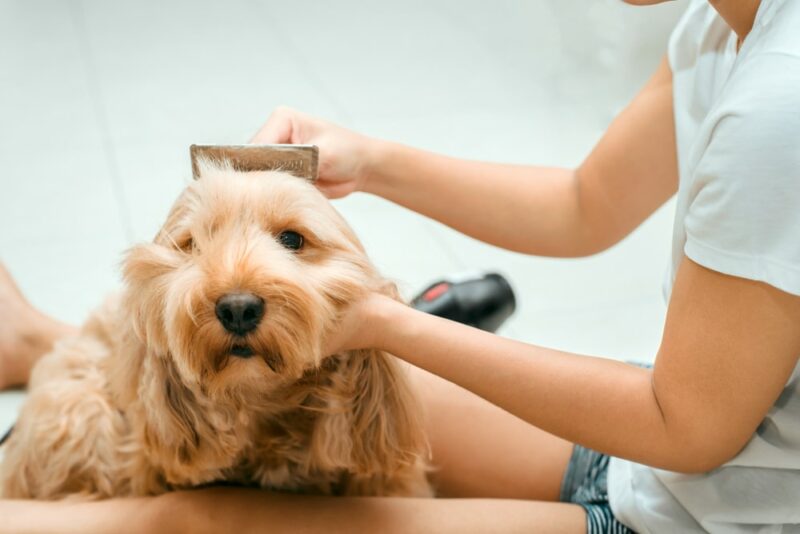
Are there Long-Haired Cockapoos?
Whenever you breed two pure-bred dogs, you’ll get a mix of puppies with both traits, and those traits will also be mixed. That includes attributes like color, size, hair or fur type, congenital diseases, etc. When you mix cocker spaniels with poodles, it’s not surprising to have at least one or two puppies in a litter with longer hair. Also, some will be less hypoallergenic than others, typically the pups with the longer hair, but not always.
How Can You Be Sure Your Cockapoo Will Have Short Hair and Be Hypoallergenic?
To ensure the cockapoo you adopt has short hair and is hypoallergenic, you must first find a reputable breeder. Veterinarians and the American Kennel Club (AKC) recommend using reputable breeders to ensure that the cockapoo you adopt is healthy. Also, a reputable breeder can help you adopt a cockapoo with the traits you’re looking for, including advising you on which family generation a particular puppy might be.
In short, using a reputable breeder is the key to getting a cockapoo with short hair and lower allergy-producing traits. Lastly, a breeder can let you know the exact designation of your puppy on the F-scale, which can help you make a better choice. Below are two other methods you can use to tell if a cockapoo pup will have the traits you want:
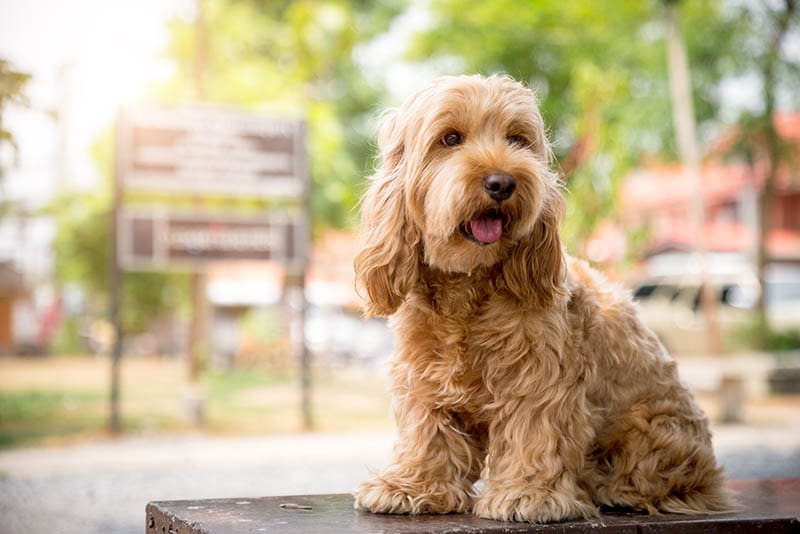
Look for Different Hair Textures
Most dogs will have one type of hair, but since cockapoos are mixed with poodles and cockers, they can sometimes be born with two. If you see that a cockapoo puppy has two textures of hair, it is possible that it has a double coat and will shed more than usual.
Look Closely at a Puppy’s Hair
Although it can be difficult to tell on a very young puppy, after 2 to 4 weeks, you can see the type of fur forming. If the puppy has tight, curly hair, it is likely that it doesn’t shed much. Of course, a cockapoo pup with long, straight hair is the opposite and will probably shed more (and might have a double coat).
One caveat with this method is that many cockapoo puppies will shed their puppy coats, and the fur that replaces it could be significantly different. A way around this is to adopt an older cockapoo that has already lost its baby coat. That way, you know the fur they have is the one they will keep.
How are Cockapoos Categorized?
Most cockapoo clubs and organizations use an F-scale to determine the generational genes of a cockatoo puppy. F1, for example, means first generation, which is a cockapoo puppy from a pedigree cocker spaniel and a pedigree poodle. F2 is the acronym for “second generation, ” meaning that the cockapoo puppy’s parents were both F1 cockapoos. The F-scale goes all the way to F7, which would be a pedigree cockapoo. In other words, the higher the F-scale, the more likely a cockapoo puppy will have the traits of a cockapoo: hypoallergenic hair that’s tight and short, long floppy ears, and a delightful disposition. The best way to know precisely which generation your cockatoo puppy comes from is to adopt yours from a reputable breeder.
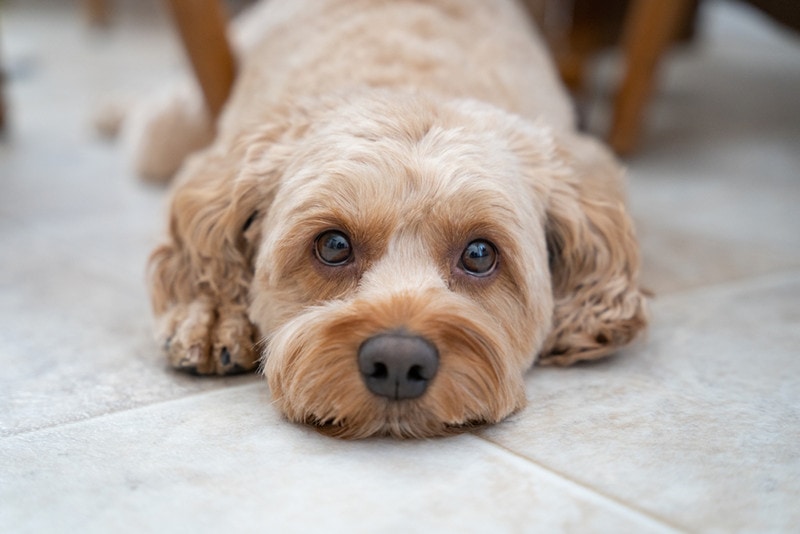
What Is a Throwback Cockapoo Puppy?
One of the facts about breeding dogs, especially those bred from two pedigrees, like the poodle and cocker spaniel, is that you can’t predict which of their puppies will get which genes. Because of this unpredictability, you’ll sometimes get a cockapoo that looks and acts like a cocker spaniel or one that looks and acts like a poodle.
These puppies, which are cockapoos, are called “throwbacks” because their genes are a throwback to an earlier generation. Some breeders refer to throwback cockapoos as having experienced the “grandfather effect” because they look as though they inherited the genes of their furry granddaddies.
Can You Reduce the Amount of Hair Your Cockapoo Sheds?
Controlling the amount of hair any dog sheds, including a cockapoo, is like trying to control the incoming tide. However, if you adopted a cockapoo that sheds or is shedding more than normal, you might be able to reduce its shedding with one of the methods below.
1. Check your Cockapoo for Parasites
All dogs can suffer from parasitic infections and, in some cases, will shed more when infected. To determine if your cockapoo has parasites, gently pull aside some of its hair and check if its skin looks red or inflamed.
Also, if your cockapoo is scratching more (or much more) than normal and losing more hair, it might have parasites that need to be treated, usually by a vet. You should also note that bacterial and fungal infections can cause your cockapoo to shed more, as can endocrine and hormonal imbalances.

2. Change Your Cockapoo’s Dog Shampoo
As ironic as it sounds, your hypoallergenic cockapoo might be allergic to a particular shampoo or other grooming products. If they’re shedding more than usual and you’ve tried other remedies, try changing your puppy’s shampoo. Most vets recommend organic and natural dog grooming products to prevent dry skin that causes hair loss.
3. Improve Your Cockapoo’s Diet
Like humans, if a cockapoo eats healthy, nutritious food, it will lead a happy, healthy life. Also, dogs require different types of food during various stages of their life, especially puppies and seniors. If your cockapoo is shedding more than normal, it might be eating poorly or eating the wrong foods.
To ensure your cockapoo’s coat stays healthy and shiny, it must get the proper amount of protein it needs, which is on the high side. It’s also critical that your cockapoo is fed a low-carb diet, as too many carbs can negatively affect their hair and skin. Lastly, you should note that, according to vets, poor diet is the #1 reason a cockapoo, or any dog, will shed more than usual.
4. Your Cockapoo Is Shedding Due to the Season
Even though cockapoos shed less than most breeds, they still shed a little and shed more during different seasons. Those seasons include spring when dogs shed a lot to stay cool during the upcoming summer. The other season is fall when most dogs shed their summer coat and grow a thicker coat for the winter. Even if your cockapoo isn’t much of a shedder, if you see them shedding more in spring or fall, it’s usually 100% natural.
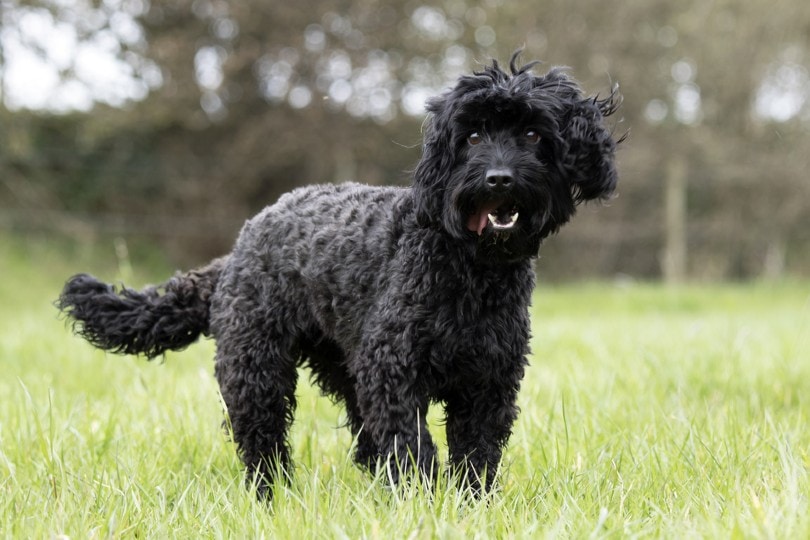
5. Your Cockapoo Might be Stressed Out
If you’ve ever heard someone complain, “I’m losing my hair from all this stress,” remember that stress affects your cockapoo’s hair too. If you’ve just moved, a family member passed away, or you just had a baby, your furry friend might lose some hair as they stress along with you. If they’re stressed, the best solution is to spend as much time with your cockapoo as possible and give them plenty of TLC.
Final Thoughts
Most cockapoos don’t shed a lot, which is one of the reasons this adorable breed is so well-liked. However, not all cockapoos share low-shedding coats. As we learned today, the specific genes passed down to your cockapoo pup by its parents will determine its particular traits, and there’s no way to predict genetics. Your best bet is to choose a reputable breeder and do your due diligence. Ask as many questions as you can and press for direct answers.
Adopting a cockapoo is a joyful experience, and we hope that the cockapoo you adopt becomes a trusted friend and loving family member.
Related Read:
Featured Image Credit: mountaintreks, Shutterstock

